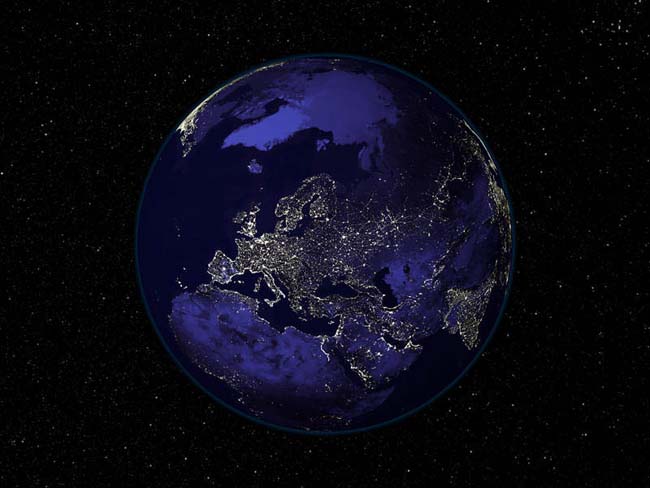 Πως θα προσέγγιζαν οι ιστορικοί του μέλλοντος την Ελλάδα των τελευταίων χρόνων; Επίσης, για πόσους - και διαμετρικά αντίθετους λόγους - η Ελλάδα έγινε διεθνώς πρωτοσέλιδο;
Πως θα προσέγγιζαν οι ιστορικοί του μέλλοντος την Ελλάδα των τελευταίων χρόνων; Επίσης, για πόσους - και διαμετρικά αντίθετους λόγους - η Ελλάδα έγινε διεθνώς πρωτοσέλιδο;Η απάντηση είναι μια άκρως κυκλοθυμική πορεία: από το 2004 με την ανάταση των Ολυμπιακών Αγώνων και την φρενίτιδα του Euro, στη συνέχεια με το μεγεθυμένο βραβείο της Eurovision το 2005 (το ναρκισσιστικό σύνθημα «βαρέθηκα να παίρνουμε το ευρωπαϊκό»), φτάσαμε σε χρόνο-ρεκόρ στην κοινωνική κατάρρευση με τις λεηλασίες τον Δεκέμβρη του 2008 και στη χρεοκοπία του 2010. Έξι χρόνια είναι ελάχιστα, σπυρί στην ιστορία, για να πάει ένας λαός από το Ζενίθ στο Ναδίρ, από τον παράδεισο στην κόλαση κι από παγκόσμιο παράδειγμα προς μίμηση να γίνει παγκόσμιος περίγελως.
Πόσες φορές τα τελευταία χρόνια έβγαλαν παγκόσμια πρωτοσέλιδα – θετικά ή αρνητικά - το Βέλγιο, η Τουρκία, η Βραζιλία ή η Ιαπωνία; Η Ελλάδα μοιάζει με παράδεισο δημοσιογράφου. Στη φράση ‘Τον Αύγουστο δεν υπάρχουν ειδήσεις’ θα μπορούσε να προστεθεί: ‘εκτός από την Ελλάδα!’
Οι ιστορικοί του μέλλοντος θα προσπαθήσουν να συνενώσουν την πορεία των τελευταίων ετών, θ’ αποπειραθούν ν’ ανακαλύψουν υπόγειες διασυνδέσεις κι αιτιάσεις. Η απόλυτη εθνική περηφάνια του 2004-5 φαντάζει τόσο αντίθετη, που δεν μπορεί παρά να συνδέεται με την πλήρη απώλεια κοινωνικής συνοχής το 2008. Κι αυτά τα γεγονότα καθρέφτισαν, θετικά το ένα κι αρνητικά το άλλο, την επερχόμενη γενικευμένη κρίση της χρεοκοπίας όπου η κορυφή του κράτους απώλεσε κάθε έλεγχο και λειτουργικότητα.
Δεν θα με παραξένευε εάν μέσα στον ενθουσιασμό μας του 2004 και 2005 ενυπήρχαν κοινωνικοί σπόροι φόβου, εάν μέσα στις φρενήρεις γιορτές μας υπήρχε η διάσταση εξορκισμού του Κακού. Σαν να κοροϊδέψαμε το Σύμπαν, σαν να ζούσαμε μια παράταση σε στημένο παιχνίδι και βιώναμε στιγμές που ξέραμε πως δεν αξίζουμε (κυριολεκτικά, η φράση του Euro ‘ο θεός κοιμήθηκε’). Όπως επίσης δεν θα με παραξένευε εάν μέσα στις ταραχές του 2008 υπήρχε μια διάθεση άρνησης της διαγεγραμμένης πορείας και επιστροφής στο όνειρο.
Δεν αντέχω να μην αναφέρω και κάτι που από καιρό γυρνάει στο μυαλό μου: το πέσιμο των προσωπείων. Μέχρι την κρίση κρατούσαμε, εθνικά και κοινωνικά τα προσχήματα. Δείχναμε να πιστεύουμε ότι οι γύρω κι οι διπλανοί μας δεν παίρνουμε χαμπάρι ο ένας τον άλλο και φερόμασταν όλοι σαν να είμαστε κάτι διαφορετικό. Μόλις τα προσωπεία έπεσαν απότομα σε κοινωνικό και κοινωνικό επίπεδο, κάποιες που το έπαιζαν τραγουδίστριες, χορεύτριες και σόου-γούμαν, μεταβλήθηκαν δημόσια σε πορνοστάρ (μετράμε τρεις μέχρι στιγμής). Δεν θεωρώ τυχαίο ότι αυτήν ακριβώς την εποχή εμφανίστηκαν τα ερωτικά DVD "επωνύμων".
Σε γενικό επίπεδο, αν είναι να παραδεχτείς για κάτι την Ελλάδα, είναι ο ακραίος τρόπος που αντιδρά κι εκδηλώνεται. Εξάγαμε την υπερβολή μας. Πολλά μπορούν να ειπωθούν για την κυκλοθυμική πορεία των τελευταίων έξι ετών και νιώθω ότι έξυσα μέρος της επιφάνειας. Ο αντίκτυπος ενός γεγονότος είναι μέτρο για τη σημασία του, αλλά και για την επικοινωνιακή δεινότητα του σκηνοθέτη. Μια Ελλάδα 10 εκατομμυρίων λοιπόν, κατάφερε να εμφανιστεί, και μάλιστα με διάρκεια, 4 φορές σε διεθνή πρωτοσέλιδα τα τελευταία έξι χρόνια, αλλά και να μεταβληθεί από απόλυτα θετικό σε απόλυτα αρνητικό παράδειγμα. Τείνω να πιστεύω πως η Ελλάδα, με την υπερβολή της, είναι ο τέλειος σκηνοθέτης του εαυτού της. Με καλλιτεχνικούς όρους, σίγουρα κάνουμε σουξέ - το αν αφήνουμε κάτι στην ίδια την τέχνη θα το κρίνουν οι καλλιτεχνικοί συντάκτες του μέλλοντος.






